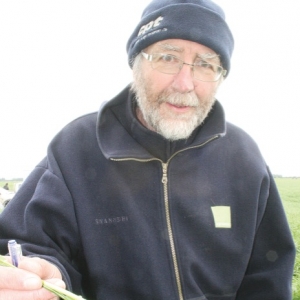The news, revealed at PGG Wrightson Grain’s winter agronomy conference earlier this month, has alarmed growers and researchers alike, given that similar resistances are causing huge headaches for growers in Australia and further afield.
“It is a major concern,” Federated Farmers Herbage Seed section chairman, Hugh Wigley, told Rural News. “We rely on bringing in fresh seed that’s not resistant to herbicides.”
The resistance to the ‘fop and dim’ Group A herbicides came to light because of volunteer ryegrass plants following seed multiplication crops survived applications of such chemistry.
Speaking to delegates at the PGW event at Methven, long-time herbage seed production agronomist Murray Kelly warned growers to be aware of the risks of resistance and consider more than just the dollars per kilo return from the seed crop when taking on a contract.
“We’ve found resistance to group A chemistry, at a huge cost to the farmer, and a huge cost to us as well,” he said.
He later told Rural News he’s aware of at least three cases of herbicide resistant ryegrass volunteers, one in wheat, one in clover, and one in a seed beet crop.
“When they’ve put in a following crop of clover, or wheat, and then gone to use a standard Group A herbicide on it to take out the ryegrass, it hasn’t done it.”
In the case of the clover, the ryegrass contamination resulted in the crop failing for seed.
While none of the resistant ryegrass came from lines PGW imported, the firm is now running a herbicide screen over the test plots it grows of all seed lines sent out for multiplication, once the development details of the plots have been recorded and relayed to growers.
“I know this is after the event but the reality is that multiplication material arrives at the point of sowing,” said Kelly. He believes all seedhouses should be doing the same. “At least then they can warn growers.”
The resistance isn’t a cause to panic, he says, as there are other herbicide options, but in some cases sacrificing a crop may be a better option than letting a resistant line set seed and contaminate the paddock, he adds.
Agresearch’s ryegrass specialist Phil Rolston supports Kelly’s call to other seedhouses to screen for resistance.
“That seems a really responsible approach and one the broader seed industry should adopt…. Seed multiplication is a really important option for growers so we don’t want to make a hole for ourselves in the long term by bringing in a problem.”
Getting the overseas suppliers of the multiplication lines to run herbicide screens on them before sending them to New Zealand would be “the ideal scenario,” he adds.
Rolston says he doesn’t know if the problem may be more widespread than the cases PGW has come across.
“The message is growers need to be really vigilant and look out for survivors of chemical controls.”
See p28-29 for more on resistance and PGW Grain’s conference.

















